Overview of the Tri-city project
advertisement
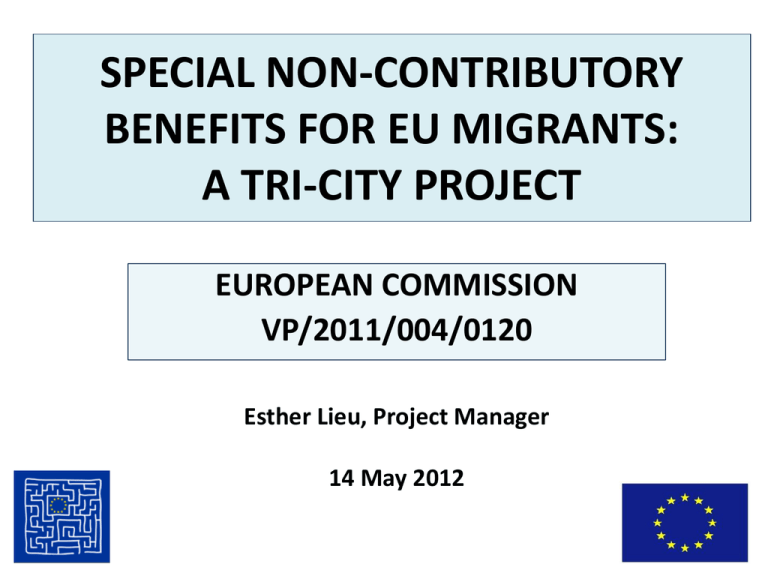
SPECIAL NON-CONTRIBUTORY BENEFITS FOR EU MIGRANTS: A TRI-CITY PROJECT EUROPEAN COMMISSION VP/2011/004/0120 Esther Lieu, Project Manager 14 May 2012 PROJECT PARTNERS LEAD PARTNER: ADVICE ON INDIVIDUAL RIGHTS IN EUROPE (The AIRE Centre), LONDON, UK Mission: To promote awareness of European law rights and assist marginalised individuals and those in vulnerable circumstances to assert those rights. We: • Take cases to the European Court of Human Rights (including cases on behalf of non-EU trafficking victims facing expulsion); • Provide free legal advice to individuals and their advisers on their rights under EU law (mostly EU law on the free movement of persons) PARTNER 1: FREE LEGAL ADVICE CENTRES (FLAC), DUBLIN, IRELAND Independent Human Rights organisation dedicated to the realisation of equal access to justice for all. Activities: • Provide free legal information, advice and representation; • Campaign for a state civil legal aid system PARTNER 2: LIZE GLAS, RADBOUD UNIVERSITY, NIJMEGEN, THE NETHERLANDS PhD Student (thesis on the relationship between European Court of Human Rights, the Court of Justice of the EU, the member states, the Parliamentary Assembly and the Committee of Ministers). Previous internships at The AIRE Centre, UNHCR Cyprus, Netherlands Helsinki Committee. 1 PROJECT OBJECTIVES & ACTIVITIES OBJECTIVE: ACTIVITIES: To improve the information that EU migrants in Amsterdam, Dublin and London have about their right to access special non-contributory benefits (Art. 70, Regulation 883/04/EC). 1. Monitoring EU migrants’ access to special noncontributory benefits in the three Member States concerned; 2. Giving advice to EU migrants applying for special noncontributory benefits; 3. Roundtables in Dublin, London and Amsterdam to discuss the problems EU migrants applying for benefits face in those cities; 4. Preparation of Information Notes in multiple languages; 5. Final Report EXPECTED OUTCOMES EXPECTED OUTCOMES • • • Low-income EU migrants in Amsterdam, Dublin and London will have more information about how and in what circumstances they can access special non-contributory benefits; Law and policy makers at local, national and European levels (including within the EC) will have more specific information about the experience and challenges faced by EU migrants accessing special non-contributory benefits; Advisers working in these three cities will create stronger networks to support EU migrants there, share best practice and develop monitoring and advocacy tools; USE OF RESULTS • • • A purposely-designed webpage will allow advisers and representatives to access the multi-lingual information notes, materials from the round-tables and conference, and other related resources for free; Advisers and representatives working with EU migrants from other Member States or other areas of these three Member States will be invited to the roundtables; The report will be sent to relevant law and policy makers at local, national and EU levels, and towards the end of the project the project staff will arrange meetings with those law and policy makers to discuss the results of the project. ACTIVITY 1 ACTIVITY DETAIL 1.1 Collection of information (through statistics already available and freedomof-information-type requests) about the number of EU migrants in these Member 1: Monitoring EU States who apply for special nonmigrants’ access contributory benefits. to special noncontributory 1.2 access in the Reporting, in relation to these claims by three Member EU migrants, of States whether their claims are successful; concerned. how long it takes for their claims to be processed (particularly as compared with host Member State nationals); and reasons why applications are refused. 1.3 Monitoring of case law in the courts of these Member States to identify the major legal issues that arise and how the national authorities have resolved them. ACTIVITIES • Explore what information is already available (especially in NL – Lize) • Draft standard FOI request regarding the nationality and gender of people making claims for SNCB. • Submit FOI in all three cities • Pursue the FOI as far as possible Create a spread-sheet to consolidate the information retrieved across the three cities (either from the FOI Request or other sources) • Establish monthly reporting template for each city • Create a spread-sheet to consolidate the reported information and areas for follow-up UPDATE ACTIVITY 2 & 3 ACTIVITY DETAIL 2. Giving advice to EU migrants applying for special noncontributory benefits. 2.1 Running a year-long specialist legal advice service, providing advice – usually to other advisers in the NGO sector working with EU migrants – on their right to access special non-contributory benefits. 3. Roundtables to discuss the problems EU migrants applying for benefits face in those cties. 3.1 Establish a network of the major NGO actors providing advice on EU migrants who may be eligible for special noncontributory benefits. 3.2 Strengthen such networks through the round-tables give the project staff an opportunity to understand in detail the problems with access to special noncontributory benefits in each city. ACTIVITIES • Lawyers and legal advisors working in the sector to be directed to the AIRE Centre where relevant • AIRE to encourage other advisors (e.g. CPAG) to refer requests for advice where relevant • Monitoring of the number of requests for advice concerning SNCB received across all three cities • NGOs to be identified in each of the three cities • Separate database of contacts compiled for each city • Master database of key contacts compiled for overall purpose of project • Round-tables to be held in London, Dublin, Amsterdam UPDATE ACTIVITY 4 & 5 ACTIVITY 4. Preparation of Information Notes in multiple languages 5. Final Report DETAIL ACTIVITIES 4.1 Preparing information notes for EU Assess what similar types of migrants and their representatives information notes are currently and advisers on accessing special available across the three cities non-contributory benefits. 4.2 Obtain feedback from network of Translation of the information NGOs as to what would be the notes into multiple languages most useful form and content of 4.3 the information note Launch of information notes at event in London and through Note for UK to be drafted; format appropriate channels in Amsterdam to be copied by FLAC and Lize in and Dublin, as well as through the accordance with outcomes of website. their research 5. Preparation and publication of a report about the results of the Project To be compiled in draft form throughout the project UPDATE LONDON – 19 JAN 2012 ATTENDEES AGENDA 9:45 - 10:00 10:00 - 10:50 10:50 - 11:00 11:00 - 12:00 12:00 - 12:10 12:10 - 12:40 12:40 - 13:00 Introduction to the Project and the Roundtable (Esther) Introductions by the Project Coordinators (Saoirse, Lize, Sarah) Break Project Staff EC Regulation 883/04 and Article 10(a): General Provisions and Background (Adrian Berry) Break Patmalniece, the Right-to-Reside Test and the EC’s infringement proceedings (Adam Weiss) Access to Benefits: Victims of Domestic Violence (Sarah St. Vincent) Saoirse Brady FLAC Karen McLaughlin FLAC Lize Glas Radboud University Adam Weiss AIRE Sarah St Vincent AIRE Esther Lieu AIRE Participants & Speakers Adrian Berry Garden Court Chambers Saadiya Chaudary The AIRE Centre Elena Consiglio The AIRE Centre Emma Fenelon The AIRE Centre Access to Benefits: Administration, Delays and Remedies (Martin Williams) Edward Graham Child Poverty Action Group Joe Kitchen The AIRE Centre 15:00 - 15:10 Break Jonathan Worboys The AIRE Centre 15:10 - 16:00 What has happened, what is happening, what will happen (All) Logistics (Project Staff) Martin Williams Child Poverty Action Group Omkar Sidhu The AIRE Centre 13:00 - 13:45 Lunch 13:45 - 14:00 Access to Benefits: Victims of Human Trafficking and Pregnant women (Esther Lieu) 14:00 - 15:00 16:00 - 16:30 DUBLIN (1st March 2012) ATTENDEES (In addition to Project Staff) AGENDA 09:40 – 09:55 Introduction to the Roundtable (Saoirse Brady, FLAC) Economic and Social Research Institute 09:55 - 10:00 Introduction from AIRE (Esther Lieu, AIRE) Crosscare Migrant Project 10:00 – 10:30 Benefits, Payments & Challenges (Saoirse Brady) 10:30 - 10:45 Migrants’ barriers to Social Welfare (Fiona Hurley, NASC) Immigrant Council of Ireland Independent Consultant Vincentian Refugee Centre T. Lyons & Co. LLP 10:45 - 11:20 The Right to Reside Test & AIRE’s Experiences (Adam Weiss, AIRE) NASC 11:20 – 11:30 Break trESS 11:30 - 12:10 Social Welfare Law (Derek Shortall, Barrister) 12:10 – 12:20 Break 12:20 – 13:10 Immigrants’ welfare receipt across the EU (Corona Joyce & Bertrand Maitre, ESRI) Threshold Trinity College Dublin Caire Citi Info 13:10 - 13:50 Lunch Ballymun Community Law Centre 13:50 – 14:05 Presentation (Lize Glas) Northside Community Law Centre 14:05 – 14:40 Pregnant Women & Victims of Domestic Violence (Elena Consiglio & Sarah St Vincent) Dublin 8 & Bluebell CIS 14:40 - 14:50 Break Pavee Point Travellers’ Centre 14:50 - 15:50 Round-table Discussion 15:50 - 16:00 Conclusion Irish Traveller Movement Law Centre Focus Ireland Law Centre NI ACTIVITIES - AIRE • ROUNDTABLES: London & Dublin • TRAININGS: Ghent (Esther) & NAWRA (Adam & Saadiya) • ADVICE REQUESTS & SURGERIES: Norfolk (and subsequent case management) • LITIGATION / REPRESENTATION: Appeals to UTT (AAC) and TPI in Court of Appeal / Reference request to CJEU • FREEDOM OF INFORMATION REQUEST: 2 (Feb 2012 & April 2012) • RESEARCH & MONITORING: o Dissemination of legislative developments including EC(COM)794, JSA Regulations (re. DV), Welfare Reform Bill, Infringement Proceedings, ‘common period’ o Dissemination of summaries of trESS Reports, ESRI Reports and other publications CASE LAW MONITORING: Spread sheet developed & populated INFORMATION NOTES: First draft version distributed for feedback NETWORKING: Regular correspondence with CPAG, RightsNet and other UKbased NGOs working on this area. • • • SPECIAL NON-CONTRIBUTORY BENEFITS IN THE UK EC Regulation 883/04, Article 70: “Characteristics of social security and social assistance”: they look like welfare benefits but also look like one or more of the following: sickness benefits; maternity and equivalent paternity benefits; invalidity benefits; old-age benefits; survivors’ benefits; benefits in respect of accidents at work and occupational diseases; death grants; unemployment benefits; pre-retirement benefits; family benefits. Annex X, UK Special Non-Contributory Benefits: • State Pension Credit (subsistence benefit for those of pension age). • Income Support (subsistence benefit for lone parents and certain others). • Income-based Jobseeker’s Allowance (subsistence benefit for those seeking work). • Disability Living Allowance (mobility component). • Income-related Employment and Support Allowance (subsistence benefit for those unable to work). (Later added to Annex X.) Social Security (Persons from Abroad) Amendment Regulations 2006 European Economic Area (‘EEA’) nationals may claim social assistance benefits if they are able to pass a two-part test known as the habitual residence test: 1. Demonstrate that they are actually habitually resident in the United Kingdom (‘where the habitual centre of their interests is to be found’) 2. Demonstrate that they have a right to reside’ in the UK (and meet the other eligibility criteria that are imposed on British citizens). DIRECTIVE 2004/38/EC (transposed into UK legislation by the Immigration (European Economic Area) Regulations 2006) Article 6: Right of residence for up to three months 1. Union citizens shall have the right of residence on the territory of another Member State for a period of up to three months without any conditions or any formalities other than the requirement to hold a valid identity card or passport. Article 7: Right of residence for more than three months 1. All Union citizens shall have the right of residence on the territory of another Member State for a period of longer than three months if they: a) are workers or self-employed persons (can include part-time work, and job-seekers) b) have sufficient resources for themselves and their family members not to become a burden on the social assistance system of the host Member State and have comprehensive sickness insurance cover c) are enrolled at a private or public establishment, accredited or financed by the host Member State on the basis of its legislation or administrative practice, for the principal purpose of following a course of study, including vocational training; and have comprehensive sickness insurance cover in the host Member State d) are family members accompanying or joining a Union citizen who satisfies the conditions referred to in points (a), (b) or (c). Article 16: Permanent Residence after five years continuous and legal residence Article 17: Permanent Residence and permanent incapacity / pension age Regulation 1612/68, Article 12: Primary carer of child in education BUT: Accession (Immigration and Worker Authorisation) Regulations 2006: certain ‘A2’ nationals (from Romania and Bulgaria) aresubject to work authorisation requirements in order to exercise a right to reside as a worker; and they are NOT able to exercise a right to reside as a jobseeker until the end of 2013. CHALLENGES AND SUCCESSES PATMALNIECE It was argued that the right-to-reside test (which British and Irish citizens, but not other EU citizens, always pass) violates Article 3(1) of Regulation 1408/71 (now Article 4 of Regulation 883/04). Their Lordships found that there was indirect discrimination (unanimous) but (4-1) that the Secretary of State’s purpose “to protect the resources of the United Kingdom against resort to benefit or social tourism by persons who are not economically or socially integrated with this country” was justified, and that the justification itself was blind to a person’s nationality. INFRINGEMENT PROCEEDINGS In response to letters from the AIRE Centre and ILPA the European Commission stated that in their view the Right to Reside test is “contrary to equal treatment guaranteed by Article 3 of Regulation 1408/71 when it is the reason that a person which is covered by this Regulation is ineligible for benefit”. In July 2010 the Commission sent a ‘letter of formal notice’ to the UK, and in September 2011, a ‘reasoned opinion’, giving a deadline of November 2011. Bristol City Council v FV [2011] UKUT 494 AAC Claimant (Romanian national) refused housing benefit on grounds that she did not have a right to reside. She successfully argued that as she sold the Big Issue at her own profit or loss, she was self-employed. She was then able to claim Housing Benefit from the council to supplement her income and support her 4 children. QUESTIONS & DISCUSSION My contact details: Esther Lieu elieu@airecentre.org 00 44 (0) 207 831 4276
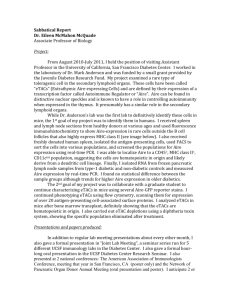
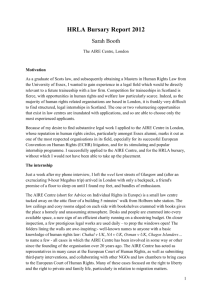
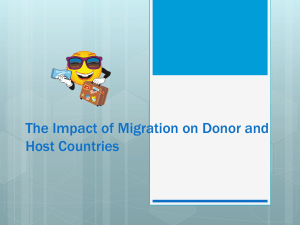
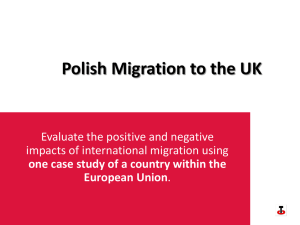
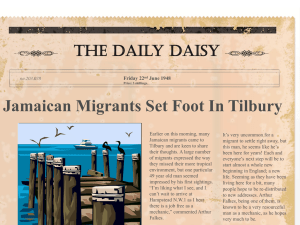
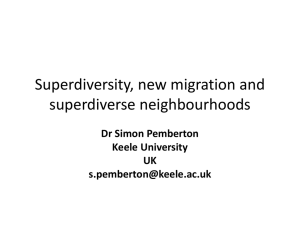
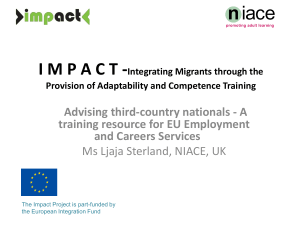
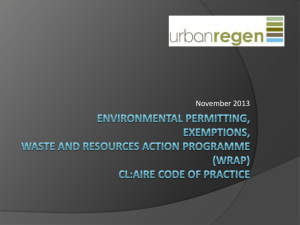
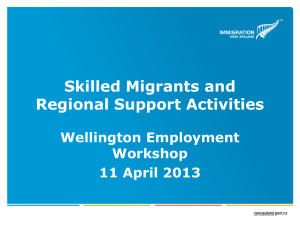
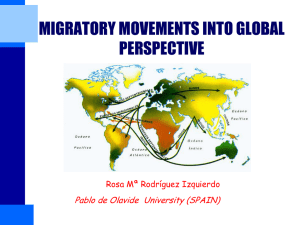
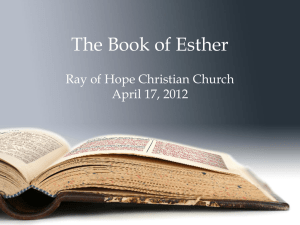
![South east presentation resources [pdf, 7.8MB]](http://s2.studylib.net/store/data/005225551_1-572ef1fc8a3b867845768d2e9683ea31-300x300.png)
